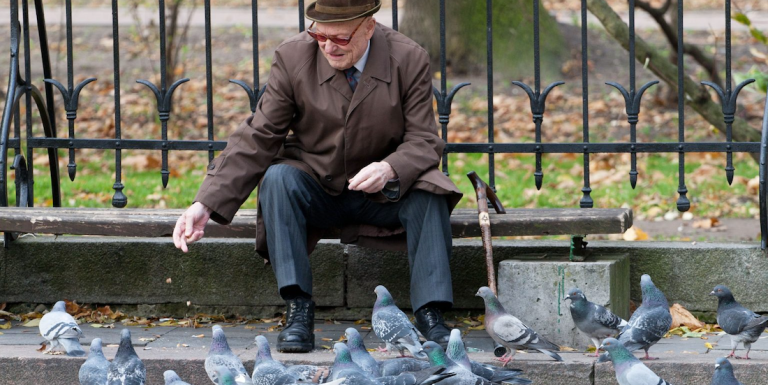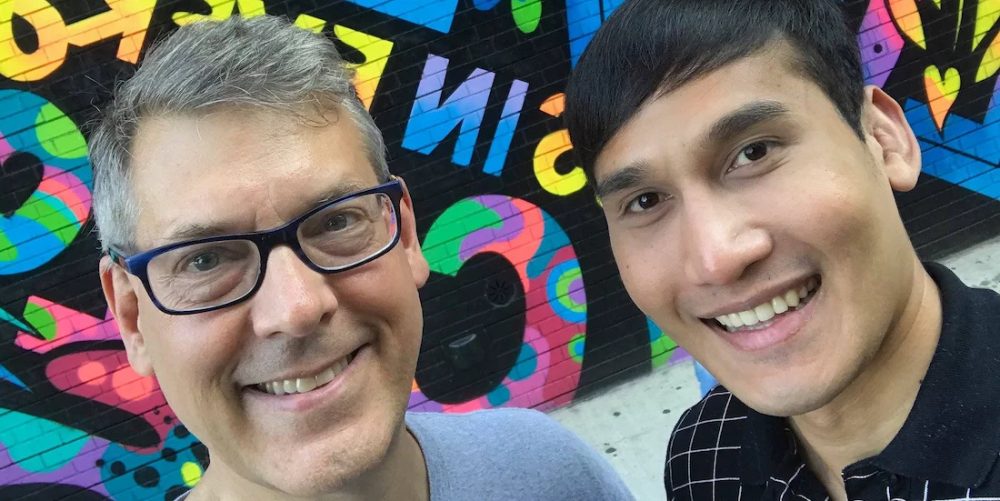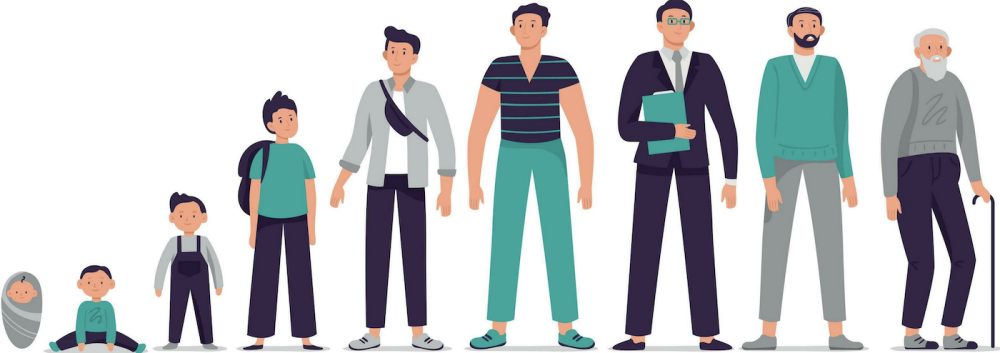
At 66, officially elderly but not feeling it, I confront America’s complex relationship with age after a sidewalk insult forces introspection.
New York, N.Y. — The sting was instant, visceral. A sharp, youthful voice sliced through the humid afternoon air of Riverside Park, landing squarely between my shoulder blades: “Get out of the way, Old Man!”
I turned, startled, to see a boy of maybe ten or eleven, scowling fiercely from behind the handlebars of his bike as he swerved around me. My dogs, a pack of Shih Tzu, barely registered the near miss, more interested in a promising scent near a bench. The boy sped off, already forgetting the obstacle he’d verbally bulldozed. I, however, remained rooted, the words echoing not just in the park, but through decades.
The Weight of a Single Phrase
It wasn’t the near collision. It was the label. “Old Man.” Five decades dissolved in an instant. Suddenly, I wasn’t a philanthropy executive enjoying a stroll with his dogs; I was the awkward, gangly kid dodging taunts and dodge balls on the cracked asphalt of a Midwestern playground. “Four-eyes!”, “Beanpole!”, “Sissy!”
The specific insults faded, but the raw vulnerability, the hot flush of shame – that hadn’t dulled with time. The playground, it seemed, was a state of mind, not just a location. The cruelty of children, regardless of era, carries a unique, unfiltered potency.
This boy hadn’t intended a philosophical inquiry; he’d simply wanted clear passage. Yet, his offhand dismissal landed with the force of a Gerontology textbook slammed shut on my self-perception.
At 66, born squarely in 1959, I knew the facts: eligible for Social Security, firmly
within the Baby Boomer cohort, statistically nearing the U.S. male life expectancy
of around 76 years (approx. 73 globally). Knowing and feeling were galaxies apart.
My internal map still charted a course decades younger. I hiked strenuous trails, devoured complex novels, embraced new technology (albeit sometimes grudgingly), felt the pulse of curiosity thrumming strong. “Old Man” felt like a costume I hadn’t chosen, forced upon me by a stranger’s careless shout.
The dissonance was jarring, the insult cutting precisely because it violated my internal reality.
Defining the Indefinable: What Makes an “Old Man”?
So, what does constitute aging in America? Is it purely chronological? A number on a driver’s license granting access to senior discounts at the local diner or reduced MetroCard fares?

Clearly not, as my internal protest proved. Is it purely physical?
The slightly receding hairline tracing its slow retreat, a process begun in my thirties?
The subtle stiffening in my right knee on damp mornings, a relic of my knee replacement?
The reading glasses now a permanent fixture on my desk? These were signposts, perhaps, but not the territory itself.
Gait? I still walked briskly, purposefully, though perhaps without the spring-loaded energy of my twenties.
Attire? My uniform of well-worn jeans, sneakers, and fleece wasn’t exactly rocking-chair chic.
Was it simply the accretion of years, a patina of time visible only to the young?
Did that boy see not me, but a collection of stereotypes – slow, frail, irrelevant?
America’s obsession with youth, perpetually fueled by advertising and Hollywood, creates a cultural backdrop where aging is often framed as decline, not continuation.
The U.N. highlights global population aging as a triumph of development, yet the lived experience in the U.S. often feels like a quiet relegation.
Through the Prism of Privilege and Identity

The boy’s shout also prompted a more uncomfortable line of questioning. Is the experience of being labeled “old” universal across America’s fractured landscape?
Does wealth provide a forcefield? Does a meticulously maintained façade courtesy of Cosmetic Surgery or expensive Wellness regimens delay the label?
Conversely, does manual labor under the Texas sun or the chronic stress of poverty etch “old” onto a face and frame decades earlier?
What about cultural lenses? In some African American communities, elders command deep respect, their age synonymous with wisdom and resilience – “Elder” carries weight, not dismissal.
Within many Latino families, abuelos and abuelas are central, revered figures.
Some Asian cultures traditionally emphasize filial piety and profound respect for seniors. While America homogenizes many experiences, these subcultural currents persist.
Was my sting partly a product of my own WASP-ish, upper-middle-class background, where visible aging might feel like a personal failing against an ideal of perpetual vigor?
Did the boy, whose own background I couldn’t discern, wield “old man” purely as a generic insult, devoid of any deeper cultural resonance, or was it subtly imbued with assumptions prevalent in his specific milieu?
The intersection of age with Race, Socioeconomic Status, and Gender creates vastly different realities for the “old man” or “old woman” navigating American sidewalks.
The Paradox of Modern Longevity
Herein lies the central paradox of our era. We live longer, healthier lives than ever before in human history. Medical Science has pushed boundaries unimaginable just a generation ago.

Retirement, once a brief hiatus before the end, can now span decades – a whole second adulthood.
Yet, culturally, we struggle to integrate this extended lifespan meaningfully.
The narrative arc often stalls after middle age. We are bombarded with messages urging us to “defy” age, “fight” aging, as if it were a disease, not a natural progression.
Pharmaceutical giants profit handsomely from this fear.
The concept of Successful Aging is gaining traction, focusing on maintaining activity, purpose, and social connection.
But the dominant cultural script still equates value with youthful productivity and appearance.
At 66, I possess decades of accumulated knowledge, hard-won perspective, and, ideally, a degree of emotional equilibrium my younger self craved.
Yet, on that sidewalk, I was reduced to an obstruction, defined solely by a perceived decline in speed and relevance. The potential of the “Third Act” is immense, but societal recognition lags far behind biological reality.
Processing the Pebble in the Shoe
How, then, do I process “Move, Old Man”? The initial hurt was real, a primal echo of childhood vulnerability. Denying that sting would be dishonest. But maturity, unlike childhood, offers tools beyond reactive anger or retreat.
The first step is acknowledging the boy’s context: impatience, thoughtlessness, perhaps mimicking language heard elsewhere. His shout said more about his momentary frustration and lack of Empathy than it did about my intrinsic worth or capabilities.
The second step is examining my own relationship with aging. Why did the label provoke such dissonance? Was I clinging too tightly to a younger self-image, denying the natural passage of time? Accepting aging isn’t surrender; it’s realism. It’s recognizing the knee will* stiffen, reading glasses are* necessary, and yes, to a ten-year-old on a bike, I am* undeniably old.
The third step is rejecting the monolithic, negative cultural script. My “old” isn’t defined by the boy’s shout or Hollywood‘s caricatures. It’s defined by continuing to hike those trails, engage with complex ideas, nurture relationships, contribute where I can, and find joy in the simple act of walking my dog in the park. It’s about claiming agency over the narrative.

The insult, ultimately, is a pebble in the shoe – uncomfortable, momentarily distracting, but not derailing the journey. It serves as a stark reminder of societal perceptions, a prompt for introspection, but not the verdict on my existence. The playground echo fades. The path ahead, however many miles it holds, remains mine to walk, at my own pace.
“Move, Old Man!” – Getting Bullied on the Playground (Again) (Aug. 18, 2025)
Summary
A boy’s shout of “Move, Old Man!” on a New York sidewalk triggers childhood memories of bullying and forces a 66-year-old man to confront the complex realities of aging in America. He grapples with the dissonance between his internal vitality and external perceptions, questioning what defines “old” across different subcultures and socioeconomic strata, and ultimately seeks a path toward reconciling societal labels with personal identity.
#AgingInAmerica #GenerationalPerception #AgingIdentity #CulturalAging #LifeStages
#BabyBoomer #SocialPerception #ElderRespect #ModernLongevity #PersonalNarrative
Tags: Aging, Perception, Bullying, Society, Culture, Identity,
Baby Boomer, Social Security, Gerontology, New York City
